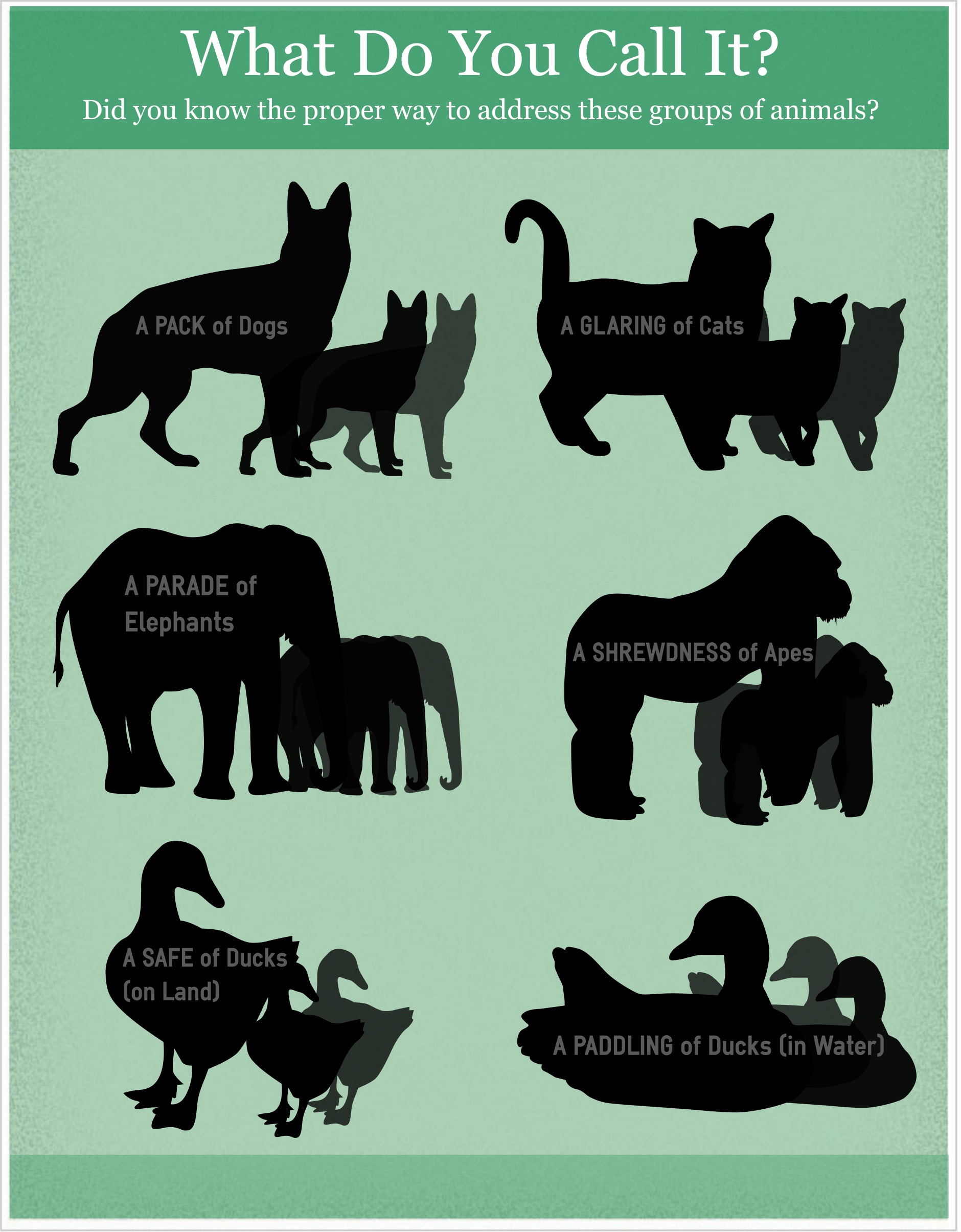That’s Not a Flock, It’s an Unkindness: Crazy Collective Nouns
Table of Contents
Ingrid Taylar/Flickr--A group of ravens together make an “unkindness.”
English uses many odd words to describe groups of animals. Why is this so, and does it exist in other languages?
Language allows its speakers to connect and share new experiences, coining words to reference every exciting discovery. Each generation bequeaths these words to the next. As time progresses, the vocabulary at society’s disposal infinitely swells, filled with colorful and charming linguistic gems that do not translate literally between cultures.
Collective nouns fall into this category.
What Are Collective Nouns?
Collective nouns are a grammatical hybrid between a singular and plural noun, handling multiple subjects as one body rather than many independent entities. Naturally, it is simpler to reference a large number of individuals as “a group” or “a people.”
Sometimes, the words designated to signify a grouping of nouns veer sharply from illustrative to bizarre. A “cloud” of flies or gnats is both visual and intuitive. The most correct way to refer to multiple ravens, however, is the much more poetic “unkindness.” Even most native speakers would be surprised to hear many of the proper terms for certain groups.
Oxford Dictionaries lists many examples of real terminology, including a “superfluity of nuns,” a “sloth of bears,” a “shrewdness of apes,” and a “hastiness of cooks.”
Interesting collective nouns seem to hold considerable literary fascination. A British crime novel by Ruth Rendell is entitled, An Unkindness of Ravens. Author Chloe Rhodes recently published the similarly named An Unkindness of Ravens: A Book of Collective Nouns that specifically expands upon this linguistic phenomenon. Others to explore include An Exaltation of Larks by James Lipton and A Compendium of Collective Nouns by Woop Studios.
Historical Origins of Collective Nouns
Many collective nouns for particular animals date back to England in the 15th century. The Book of Saint Albans from 1486 contains essays on hawking, hunting, and heraldry. In its essays, many terms for groups of various types of fauna remain in use today. Multiple purposes for such specific diction are probable--to help hunters improve communication amongst themselves and for class and educational distinction.
Oxford Dictionaries writes that, unlike French, Spanish, and many others, the English language actually has no truly authoritative governing body to dictate what words are and are not officially permissible. So, new collective nouns simply entered common usage at different points in history and, from their nascent states, grew in popularity until the English-speaking world universally accepted them.
Collective Nouns in Other Languages
Collective nouns are not unique to English alone. And, just like many English examples, they are not all obvious or very intuitive. Consider a “school of fish.” In Portuguese, “a school” translates literally to “uma escola” and “fish” is peixe.
A native speaker, however, would be very confused to hear about uma escola de peixes; he or she would presume the speaker meant an educational institution that only teaches fish, or maybe a school building that was built with fish instead of bricks and a roof. In Portuguese, the correct way to refer to a group of fish is um cardume de peixes.
Idiosyncrasies in foreign languages abound. Additonal examples in Portuguese include grasping the difference between um rebanho, a flock of sheep or goats, and uma revoada, a flock of birds. Um enxame refers to a swarm of almost every insect, but um panapaná is a swarm of butterflies. Returning to “a school of fish,” Spanish instead groups them as un banco de peces or “a bank of fish.”
A new learner could spend a lifetime attempting to memorise all these tiny discrepancies, but the best way to internalise linguistic nuance is through regular conversation with someone who has already spent his or her lifetime learning the fun twists and turns of that language as a native speaker.
Culture and history heavily influence collective nouns, which in turn affect how we understand different things, people or animals. Listen & Learn emphasises the importance of quality instructors in your area for just this reason.




